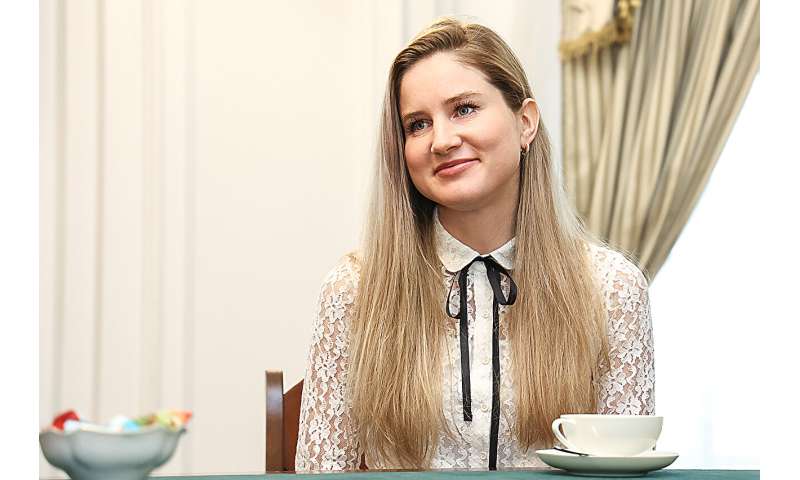Chemists develop a technique to determine preservatives in soft drinks

Young scientists from St Petersburg University have developed a simple express method to identify the E200 and E210 additives in soft drinks. In large quantities, these additives are harmful to human health. Using the new technique, it takes five minutes to determine the presence of the E200 and E210 in juices, sodas and other beverages, including those intended for children's consumption.
Today, it is difficult to imagine the food and beverage industries without various preservatives that are commonly used to extend products' shelf-life by preventing biological degradation and by slowing changes in colour, flavour or texture. In moderate amounts, these substances do not have a negative impact on human health. If however manufacturers do not comply with the established standards, food additives can lead to various diseases and disorders. At present, the preservatives that are permitted to be used and most commonly used in soft drinks are benzoic (the additive E210) and sorbic (the additive E200) acids, which can also be naturally found in some food and drink products, such as carbonated beverages.
In large quantities, these substances may cause allergic reactions. Also, excessive doses of benzoic acid (E210) have been associated with several adverse effects, such as: cognitive impairment; metabolic acidosis; convulsions; and hyperventilation. Currently, the content of benzoic and sorbic acids, added as food and beverage preservatives, is strictly regulated and manufacturers are obliged to control the concentrations of these additives in their products.
The early-career researchers in analytical chemistry from St Petersburg University have developed a new rapid test for the detection of preservatives in beverages.
'Our technique involves the extraction of the preservatives E200 and E210 from beverages into natural terpenoid—menthol, followed by the determination of the analytes using high-performance liquid chromatography with photometric detection. The developed technique enables researchers to determine the content of the preservatives selectively, sensitively and at a level below their maximum permissible concentration. It should be noted that the advantage of the technique lies in the rapid identification of target analytes: sample preparation and analysis take no more than five minutes,' said Irina Timofeeva, Professor of Institute of Chemistry at St Petersburg University, laureate of the Russian Presidential Prize in Science and Innovation for Young Scientists.
At the beginning of 2023, Irina Timofeeva and Andrei Shishov, Associate Professors in the Department of Analytical Chemistry at St Petersburg University, were named laureates of the annual Presidential Prize in Science and Innovation for Young Scientists for 2022.
The technique developed by the University chemists is a menthol-assisted selective extraction of preservatives from beverages. Menthol is a natural terpenoid, often used as an inexpensive organic extractant. The efficiency of the transfer of analytes into the extractant phase is ensured by intensive stirring of the mixture, thus initiating evaporation of a volatile organic solvent (dichloromethane). After the extraction, the menthol phase with the extracted preservatives is analysed using high-performance liquid chromatography, a modern technique used in analytical chemistry to separate, identify, and quantify each component in a mixture.
'Most food products have a complex multi-component matrix that contains and/or interacts with many specific constituents of a food, such as: carbohydrates; organic acids; proteins; vitamins; dietary fibre; and colouring agents. Complex sample matrices can complicate chemical analysis and degrade the performance of the laboratory equipment; in particular, the equipment for liquid chromatography. We have developed a simple technique that enabled us to solve this issue,' said Mariia Kochetkova, a laboratory assistant-researcher in the Department of Analytical Chemistry at St Petersburg University.
To test the potential of their new technique, the University researchers have analysed a variety of drinks for babies. Such a choice is due to the fact that children are most susceptible to the negative effects of food additives.
St Petersburg University chemists have extensive experience and expertise in the chemical analysis of the composition of various liquids. For instance, they have developed a technique for detection of antibiotic residues in shrimp, milk and wastewater.
More information:
sciencejournals.ru/view-articl … him2307009Kochetkova
Provided by St. Petersburg State University